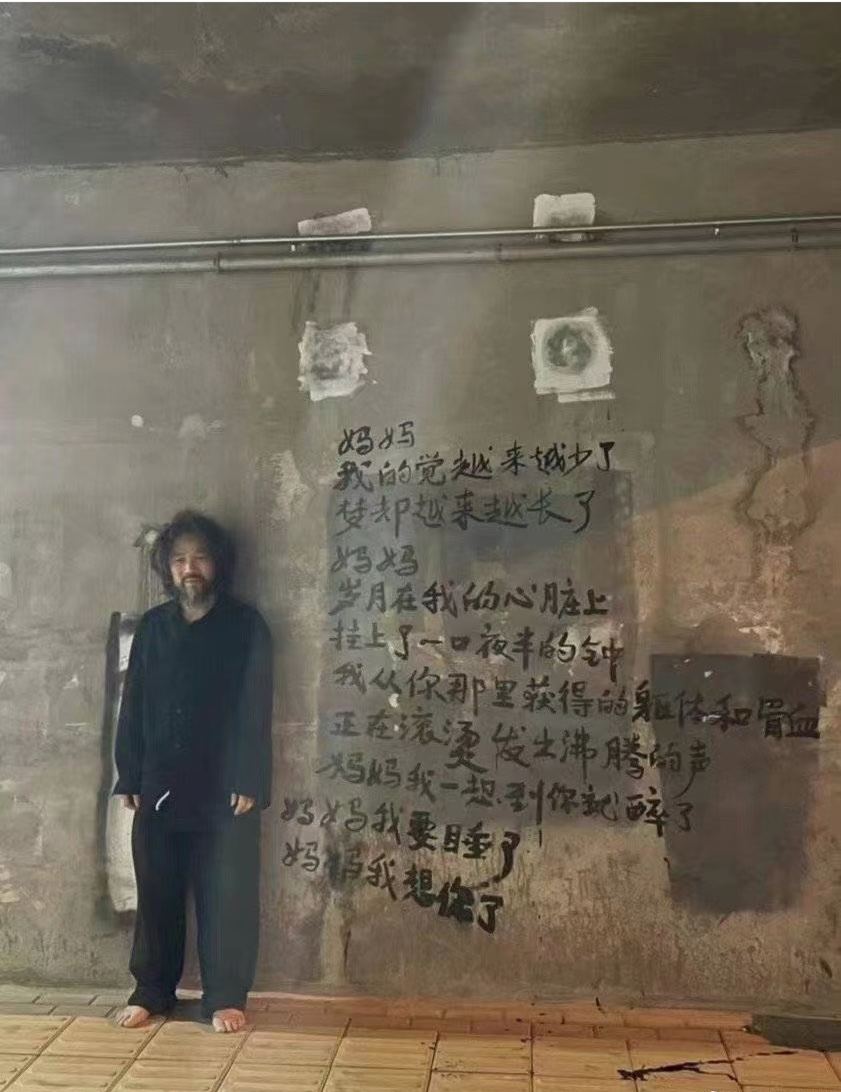An underpass in Zhengzhou has quietly become a site of contention over artistic freedom. A photograph of the poem “Momma” by the little-known artist Zhang Boyi, graffitied underneath a Zhengzhou bridge in May, went viral on Weibo this past week due to its touching verses and Zhang’s shoeless, unkempt appearance. Soon after, unknown parties whitewashed the wall. Zhengzhou authorities have denied knowledge of who erased the poem, but this has not dampened suspicion that they were behind it themselves. Then, in shades of the recent Core Socialist Values Graffiti incident in London, others began to write their own messages atop the whitewash, giving the wall new meaning. CDT has translated Zhang’s original poem:
“Momma” by Zhang Boyi
Momma
I sleep less and less
but my dreams grow ever longer
Momma
The years hang upon my heart
like a bell tolling in the dead of night
This body you gave me, this flesh and blood,
roils and boils, seething with sound
Momma, I am drunk with the thought of you
Momma, I’m so tired
Momma, I miss you. [Chinese]

Zhang Boyi was sanguine about his poem’s erasure: “I was able to encourage a few youngsters, what’s there to be sad about?” But on Weibo, netizens mourned the destruction of the poem. Weibo user @雨中渔者 shared an image of the poem and the white-washed wall and wrote: “There it is, what sorrow. You can write paeans to good fortune, but you must not leave a trace of suffering. Living like ants, denied even a record of our existence.” On WeChat, the essayist @亮见 wrote on the terror that they believe drove the government to erase it:
Everybody thinks the authorities sent someone to erase the poem for reasons that must remain unspoken.
If it truly was done by officials, I figure what they feared most was that people might perceive the poem as a metaphorical attack and create associations with it where none exist.
It’s just like the Zhihu user @倪明 said: “Maintain a humdrum equilibrium. [They] don’t want it to become a point of focus or intrigue. Neither praise nor criticism are desirable.” What we’re really seeing with the erasure of this poem is fear on the part of Zhengzhou’s leaders about having the spotlight of public opinion directed at their city. It’s like they’re saying, “Don’t look over here!” [Chinese]
After the poem was whitewashed, the Twitter account @whyyoutouzhele documented counter-graffiti, written over the whitewash. One, a poem titled “Spider,” was itself later whitewashed. In its stead, someone wrote, “Has Man a Future?” the title of a 2015 Li Zhi song that was the theme of the Wang Xiaoshuai Cultural Revolution-related movie “Red Amnesia.” Li Zhi, a popular folk singer, has seen his works partially erased from the Chinese internet for his willingness to sing about the Tiananmen Massacre and human rights. Despite those erasures—of poetry and Li Zhi—memory continues to persist.
Poem translated by Cindy Carter.







